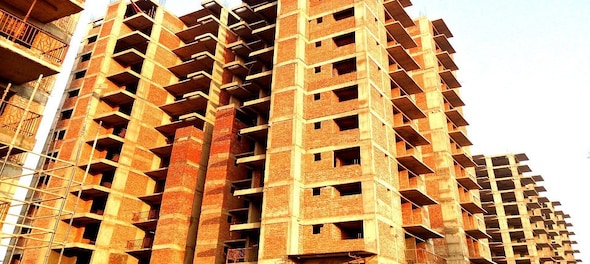
Real estate sector makes a significant contribution to the GDP and more importantly is the second largest employer in the economy. Given forward and backward linkages that it has with other industries, the sector is also responsible for supporting other ancillary industries such as cement, steel, paints, brick, timber, building materials and so on. A unit increase in expenditure in this sector has a significant multiplier effect on the economy.
During the last five years, the government introduced a plethora of initiatives to boost the sentiments of the stakeholders for reviving the growth of real estate sector in India. The initiatives range from announcing the objective of Housing for All by 2022, proposing interest subsidy for affordable houses, implementing Real Estate Regulatory Authority (Rera) to create transparency, reducing the GST rates, providing stringent laws to deal with benami transactions and mandating homebuyers as financial creditors for the purpose of the Insolvency and Bankruptcy code.
However, the sector continues to struggle with lack of funding to developers, high levels of inventory and increasing debt, and is looking for further reforms in the upcoming Budget 2019.
Following are some of the key recommendations which the government should consider in the budget:
a.
Currently, there is a limit of Rs 200,000 on setting off of loss arising under the head house property with income under any other head. The said provision is detrimental for both consumers and developers as it limits the ability to obtain tax benefits on purchasing real estate through loan financing. The government should consider increasing the cap or removing the same, to provide incentive to people for investing in real estate by obtaining loan from banks and thereby help reduce the significant level of inventory in the sector.
b. Some of the key provisions which should be introduced with regards to business trusts commonly known as real estate investment trust / infrastructure investment trusts are:
1. Exemption from applicability of provision (to business trusts) which provides for denial of carry forward losses of a special purpose vehicle (SPV) where there is a change in shareholding of SPV acquired by the business trust.
2. Tax exemption which is currently available to sponsors on transfer of shares of a SPV to business trust, should be extended to transfer of shares of the capital assets/or interest in a firm/ LLP to the business trust against exchange of units.
3. Taxability of units of business trust should be brought in line with the taxability of listed shares i.e. units held for a period of 12 months should be eligible for long-term capital gains tax akin to listed shares against the current 36-month period.
4. Definition of SPV should be amended to cover a two-tier structure for the purpose of the dividend distribution tax exemption.
c. Taxability of notional rental income on unsold inventory of the developers (beyond two years from the end of financial year in which completion certificate is obtained) is adding strain to the debt-laded balance sheets of the developers and should be done away with.
d. Beneficial tax regime introduced for affordable housing is available to residential projects where carpet area does not exceed 30 square metres (for project located in metropolitan cities) and 60 square metres (for other projects). The cap on carpet area should be increased to at least 90 square metres.
e. On account of new accounting standards (which are applicable in case of companies having net worth of Rs 250 crore or more), a company has to recognise revenue only where the delivery of the project has taken place with the customer (completed contract method), which is a major transition from earlier practice of recognising revenue based on percentage of completion method (POCM). However, domestic tax laws still provide that revenue is to be recognised based on POCM. Given the mismatch in timing of recognising revenue in books vis-à-vis determining revenue as per the provisions of the Act, there is a possibility of companies losing tax credit for discharging future tax liability. Furthermore, companies are facing challenge in maintaining two separate books i.e. one for accounting purposes and one for tax purposes. Considering the same, it is the need of the hour to align accounting standards with provisions of tax laws to bring in the consistency.
f. Clarification in relation to timing of taxability in case of joint development agreement should be provided for land owners other than individual and HUF as well.
g. As per existing GST regime, a developer is not eligible to claim input credit of GST paid in respect of goods/services availed for construction of the immovable property against the output GST payable for leasing of such property. The said restriction should be removed to reduce the cost of construction and give boost to the construction sector.
h. Developers/ builders should be granted industry status enabling them to raise finance at lower cost from banking institutions.
The policies/incentives introduced by the government so far have resulted in commendable transparency in the system thereby boosting investors’ confidence. A few more steps as outlined above will help resolve the prolonged slowdown in the real estate sector and unleash its true potential.
Gaurav Karnik is Tax Partner and National Leader, Real Estate, at EY India. The views expressed in the article are personal.
First Published: Jun 20, 2019 6:00 AM IST
Check out our in-depth Market Coverage, Business News & get real-time Stock Market Updates on CNBC-TV18. Also, Watch our channels CNBC-TV18, CNBC Awaaz and CNBC Bajar Live on-the-go!


BJP holds meeting in Delhi as polling underway for 5th phase
May 20, 2024 4:21 PM
UP Police arrests man after viral videos shows him voting multiple times
May 20, 2024 2:18 PM

